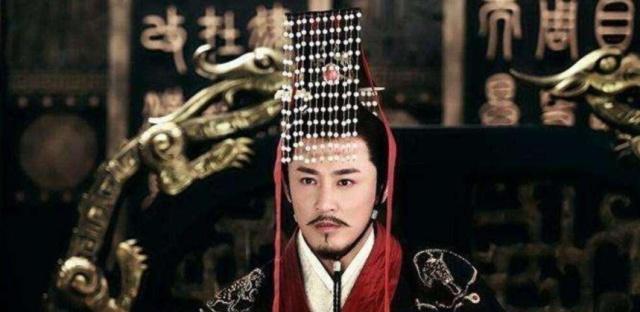[Pay attention to us, see the historical puzzle with one hand.] 】
As one of the world's four major ancient civilizations, China has a long history of more than 5,000 years. In this long river of history, many outstanding historical figures have emerged, and a prosperous and rich culture of the Chinese nation has also been created. Chinese has always called itself a descendant of Chinese civilization, but do you know the origin of "China"?

Since its founding, China has been known as the People's Republic of China. In fact, the word "Zhonghua" appeared as early as the Qin Dynasty. Speaking of the Qin Dynasty, we have to mention Qin Shi Huang, who ended the chaos of the Spring and Autumn Warring States period and established the first feudal dynasty, which allowed the scattered Chinese civilization to regroup and last for thousands of years.
Not only that, in order to flaunt his great achievements, Qin Shi Huang took a word from each of the "Three Emperors and Five Emperors", which led to the word emperor. As the first emperor in Chinese history, he was also known as the First Emperor. In fact, the name Zhonghua is related to Qin Shi Huang, which is a name given to China by Qin Shi Huang.
The title of "Emperor" did not disappear until after the fall of the Qing Dynasty. The word "Zhonghua" has been used to this day. So, why did Qin Shi Huang give the name "Zhonghua" to China, which was like a "baby" at that time, and what was the meaning of this word in ancient times? You may also have a question, that is, why this word can be used to this day, and I will explain it to you one by one.
First of all, the word "Zhong" in "Zhonghua" means the middle of the world in terms of geography. In ancient times, people's world view was a round place, and they thought that the place where they were located was the most orthodox place, so many people called the place where they lived "zhong". Moreover, from the ideological point of view, "Zhong" also has the meaning of moderation and orthodoxy.
Second, the word "Hua" is used to distinguish between Central Plains and foreigners. Ancient Chinese costumes were very ornate, while foreign tribes were not, so there was such a distinction. There is also the fact that after the establishment of the Qin Dynasty, Qin Shi Huang hoped that his country would be prosperous and strong, and the word "Hua" had a strong meaning, so the word "Hua" also represented a good wish of Qin Shi Huang.
"Huaxia" is also another title in China. As the first dynasty in China, the Xia Dynasty was divided by many princely states during the Spring and Autumn Period, and they were collectively called "Zhuxia". After the unification of the Qin Dynasty, all the countries were administered by the Qin Dynasty, and by this time, Huaxia represented the Central Plains. Therefore, the Qin state at that time was also called Zhonghua.
The main reason why the word "Zhonghua" can be used to this day is that these two words are extremely inclusive. In the long river of development of China's history, it has integrated dozens of ethnic groups and their cultures. Mr. Liang Qichao proposed that the Chinese nation has made the Han nationality and other ethnic groups become without boundaries. China's development so far is inseparable from its strong inclusiveness.
Now, "Zhonghua" has become synonymous with China. The people have always been adhering to their good wishes for the country, but also a recognition of their own identity as a descendant of Yanhuang, which has allowed the word Zhonghua to be passed down for thousands of years. Here, I also hope that everyone can better understand Chinese history, understand Chinese culture, and do a good job as a descendant of the Chinese nation.
Reference: Chronicle of History
[Follow us, here you can harvest historical stories, you can also harvest secret anecdotes, and there are tons of historical trivia that you don't know.] 】